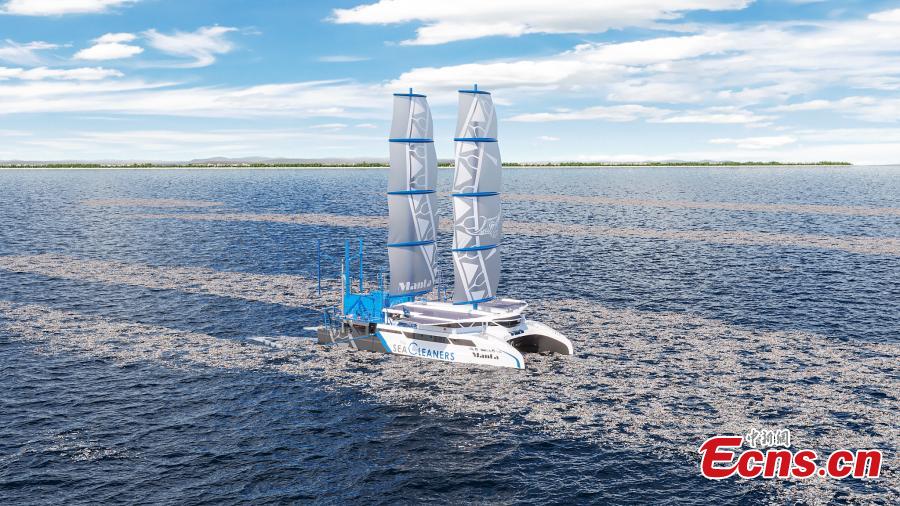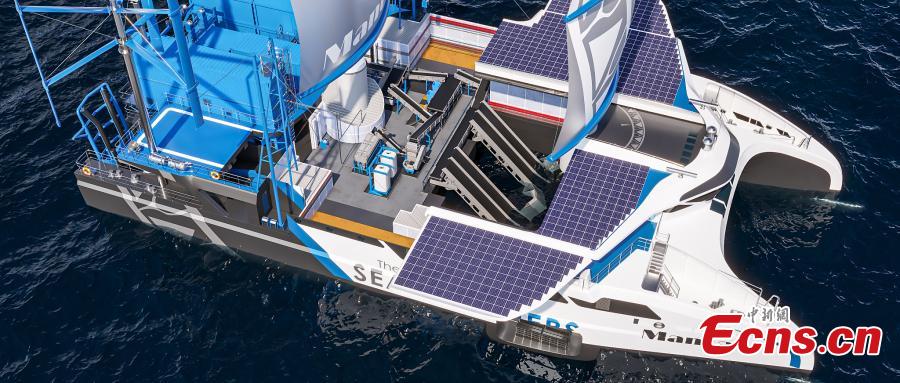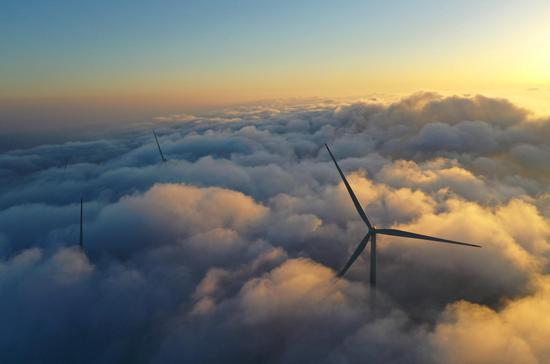
The undated photo shows Manta, a giant hybrid sailboat created by SeaCleaners to reinforce the battle against plastic pollution in oceans. (Photo/VCG)
Manta is the first-of-its-kind processing ship designed to collect, treat and repurpose large numbers of plastic debris floating in polluted waters. Relying primarily on renewable energy sources, the deep-sea vessel is eco-friendly and able to cross the oceans, intervening rapidly wherever it’s needed.
Poised for launch in 2024, the Manta will operate autonomously 75 percent of the time without fossil fuels, and it will be able to extract between 5,000 and 10,000 tons of floating plastics each year.

The undated photo shows Manta, a giant hybrid sailboat created by SeaCleaners to reinforce the battle against plastic pollution in oceans. (Photo/VCG)
Manta is the first-of-its-kind processing ship designed to collect, treat and repurpose large numbers of plastic debris floating in polluted waters. Relying primarily on renewable energy sources, the deep-sea vessel is eco-friendly and able to cross the oceans, intervening rapidly wherever it’s needed.
Poised for launch in 2024, the Manta will operate autonomously 75 percent of the time without fossil fuels, and it will be able to extract between 5,000 and 10,000 tons of floating plastics each year.

The undated photo shows Manta, a giant hybrid sailboat created by SeaCleaners to reinforce the battle against plastic pollution in oceans. (Photo/VCG)
Manta is the first-of-its-kind processing ship designed to collect, treat and repurpose large numbers of plastic debris floating in polluted waters. Relying primarily on renewable energy sources, the deep-sea vessel is eco-friendly and able to cross the oceans, intervening rapidly wherever it’s needed.
Poised for launch in 2024, the Manta will operate autonomously 75 percent of the time without fossil fuels, and it will be able to extract between 5,000 and 10,000 tons of floating plastics each year.























 京公网安备 11010202009201号
京公网安备 11010202009201号